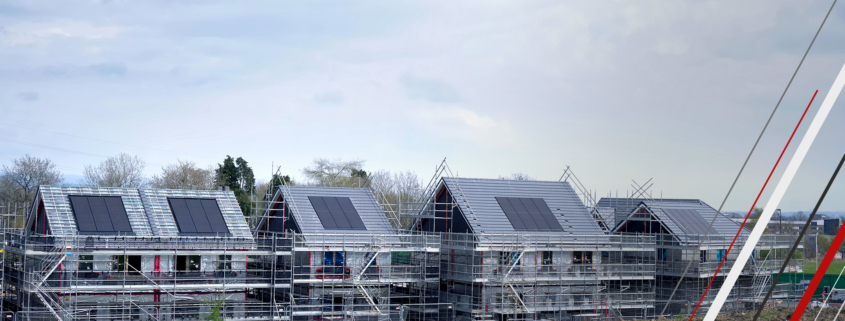The Considerate Constructors scheme have recently conducted a survey which reveals an urgent need for greater awareness and understanding of air pollution across the construction industry, and provides advice on tackling the issue.
Air pollution is a key concern for the construction industry due to the sector’s considerable impact on air quality.
•Less than a quarter of all air pollution-related deaths are in London, so it is clear that air pollution is everyone’s problem.
•Construction sites are responsible for 7.5% of nitrogen oxide emissions, 8% of large particle emissions and 14.5% of emissions of the most dangerous fine particles.
•The construction sector mostly contributes to air pollution through construction dust, plant machinery and construction transport.
•The industry is taking steps to reduce air pollution through air quality plans, emissions monitoring, dust management, low-emission plant machinery, delivery management and raising workforce awareness.
Air quality plans
At the outset of a large project or one adjacent to sensitive receptors, it is important to incorporate air quality considerations into the management and logistics plans. These can include the following:
•Where the risk of dust is deemed to have a negative impact on amenity, health and the natural environment – relative to site-specific factors such as proximity to sensitive receptors – an Air Quality Assessment may be required. This assessment should identify the level of risk to air quality during each stage of the project.
•Air Quality and Dust Management Plans should outline the steps being taken to mitigate the adverse impact of construction activities on air quality.
•In preparing Construction Logistics Plans, contractors should engage with their client/developers to demonstrate how they will deal with pollution issues during construction. This can include the controls and systems outlined in the above documents and traffic/delivery considerations.
Monitoring
It is difficult to assess a site’s impact on air quality if no monitoring is carried out, so sites could consider the following:
•Baseline monitoring of air quality levels in the vicinity of the works before the project commences will act as a reference point to identify good and bad practice throughout the project.
•Dust emissions should be monitored through specialised machinery, visual inspections, daily dust logs etc.
•Continuous air quality and particulate monitoring will alert the contractor to any rapid increases in pollutant concentrations, so that mitigation measures can be put in place.
While 84% of survey respondents acknowledge there is an issue with air pollution in the construction industry, nearly two thirds (64%) feel the industry is not doing enough to tackle this issue.
The survey, which involved over 600 respondents from across the UK and Irish construction industries, also revealed:
•91% said air pollution is a nationwide issue.
•88% said the importance of minimising air pollution is being communicated to the workforce on their site.
•62% said their site has appropriate measures in place to address air pollution.
•56% have a good or detailed understanding of air pollution.
•39% have an average understanding of the regulations surrounding air pollution.
Considerate Constructors Scheme Chief Executive, Edward Hardy said:
A staggering 40,000 deaths a year are linked to air pollution in the UK, and many people are suffering long-term health problems caused by poor air quality. As construction is a significant contributor to air pollution, it is essential for the industry to put measures in place to clean up our air by working together to reduce our impact on air quality.
The Scheme’s ‘Spotlight on…air pollution’ campaign provides everyone within the industry access to a practical suite of resources including best practice, guidance and case studies from Scheme-registered construction sites, companies and suppliers on how to tackle this issue, as well as guidance from organisations including the Institute of Air Quality Management, Healthy Air Campaign and the Greater London Authority.
We are proud to be at the forefront of collaborative efforts to tackle air pollution, having partnered with the Institution of Civil Engineers to produce Scheme posters for registered sites, companies and suppliers to raise the issue of air pollution to their workforce. The Institution of Civil Engineers has also recognised the value of the industry being committed to the Considerate Constructors Scheme, having highlighted Scheme registration within its London Air Quality Taskforce report published in 2017.
Professor Peter Hansford FREng FICE, Chair of ICE Air Quality Task Force commented:
The Institution of Civil Engineers is delighted to be partnering with the Scheme for the launch of its ‘Spotlight on…air pollution’ campaign. The Scheme offers a golden opportunity for the industry to ‘up its game’ in relation to air quality around our construction sites and is a key driving force in helping to address this issue across the industry.
For the full report please go here:
https://ccsbestpractice.org.uk/spotlight-on/spotlight-on-air-pollution/#Introduction
Sources: cscscheme.org








